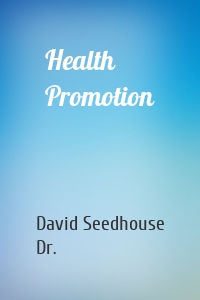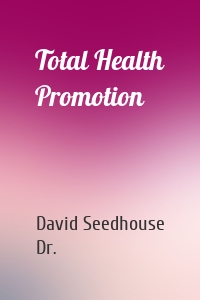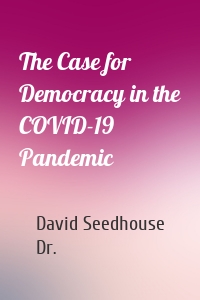David Seedhouse
3 кн.
Health Promotion
Incisively written, this new edition of a popular guide first published in 1996 slices through the rhetoric of health promotion. Its penetrating analysis quickly reveals health promotion’s conceptual roots, providing an enlightening map of their web of theory and practice. David Seedhouse proves that health promotion, a discipline intended to improve the health of a population, is prejudiced—every plan and every project stems first from human values—and argues that only by acknowledging this...
| Автор | David Seedhouse, Dr. |
Total Health Promotion
Physical health is continually affected by the mind. Positive thinking, learning to deal with anger and malice, and being a part of creative social networks can extend life and lessen our chances of becoming ill. But despite overwhelming scientific evidence that mind and body are integrally related, health promotion is split into separate specialisms: mental health promotion, exercise and nutrition, social health promotion, health education and many other categories.
| Автор | David Seedhouse, Dr. |
The Case for Democracy in the COVID...
One moment life was normal, the next, governments around the world were imposing radical lockdowns of their populations. But why were decision-makers so readily ignoring centuries of hard-won civil freedoms? Where was the discussion of ethics and human rights? Why were we so easily controlled and why were our controllers so willing to do it? In The Case for Democracy, David Seedhouse explores the psychological biases; distorted risk perceptions; frenetic journalism; the disputed...
| Автор | David Seedhouse, Dr. |




